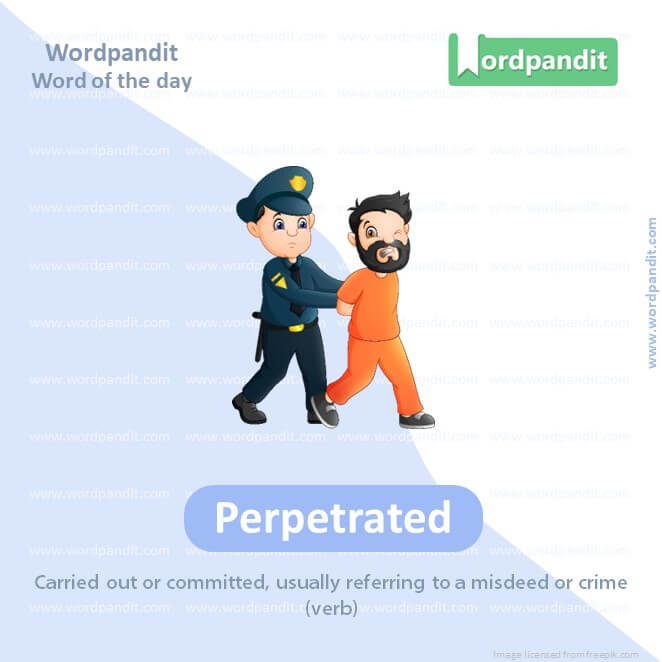Daily Vocabulary Words: Enhance Your Lexicon with Leading Newspapers & Publications
Welcome to the Daily Vocabulary section at Wordpandit!
Our mission is straightforward: to bring you essential vocabulary words featured in top newspapers and publications worldwide. By focusing on words you’ll encounter in renowned sources, we aim to help you enhance your vocabulary effectively and practically.
Our selection includes words from:
– The New York Times
– The Washington Post
– Scientific American
– BBC
– The Guardian
– Psychology Today
– Wall Street Journal
– The Economist
– The Hindu
– The Times of India
– The Economic Times
– Hindustan Times
– Live Mint
– The Indian Express
– And many more.
We are committed to your vocabulary development. Simply visit this section regularly and explore the daily posts. This is your go-to repository for commonly used words, providing significant practical benefits by familiarizing you with vocabulary from the leading publications listed above.
Make it a habit to visit our website daily and expand your lexicon with words from top newspapers and publications.
WORD-1: RETICENCE
CONTEXT: This has been a mixed bag since the politics surrounding the relentless Israeli attacks on Palestine have led to divergent views among US allies and there is visible reticence among the latter to uncritically support Washington in this matter.
SOURCE: Indian Express
EXPLANATORY PARAGRAPH: Imagine you know the answer to a question but feel too shy to say it out loud. That feeling of not wanting to talk or share is called “reticence.” It’s like when you’re keeping your thoughts or feelings to yourself instead of speaking up.
MEANING: The quality of being unwilling to speak or share thoughts and feelings (noun).
PRONUNCIATION: RET-uh-suhns
SYNONYMS: Reserve, shyness, hesitation, silence, restraint, reluctance
USAGE EXAMPLES:
1. Despite knowing the answer, her reticence kept her from raising her hand in class.
2. The boy’s reticence made it hard for him to make new friends.
3. She broke her reticence only after much encouragement from her parents.
4. His reticence during the meeting was mistaken for a lack of interest.
WORD-2: PERTINENTLY
CONTEXT: He has pertinently observed that the geographical arrangement of the four dhams, 12 jyotirlingas, and the concept of our Shaktipeeths connecting different corners of our country is an expression of Ek Bharat, Shreshtha Bharat spirit.
SOURCE: Hindustan Times
EXPLANATORY PARAGRAPH: When you say something that is exactly right for the situation, that’s called saying it “pertinently.” It’s like when you talk about ice cream on a hot day—what you’re saying really matches what’s going on.
MEANING: In a way that is relevant and directly related to the matter at hand (adverb).
PRONUNCIATION: PUR-tuh-nuhnt-lee
SYNONYMS: Appropriately, relevantly, suitably, directly, fittingly
USAGE EXAMPLES:
1. She pertinently pointed out the need for more rest during the busy season.
2. The teacher answered all the questions pertinently during the lesson.
3. He pertinently addressed the issue in his speech.
4. The article pertinently discusses the challenges faced by small businesses.

WORD-3: FLEDGLING
CONTEXT: His fledgling party polled about 3 percent votes and won four seats.
SOURCE: Hindustan Times
EXPLANATORY PARAGRAPH: Imagine a baby bird that’s just learning to fly. It’s not very good at it yet because it’s new to flying. That’s what we call a “fledgling”—something or someone who is new and still learning.
MEANING: A young bird just learning to fly, or a person who is new to a task or activity (noun)
PRONUNCIATION: FLEJ-ling
SYNONYMS: Beginner, novice, newcomer, rookie, apprentice, neophyte
USAGE EXAMPLES:
1. The fledgling business struggled at first but soon found its footing.
2. As a fledgling artist, she still had much to learn about painting.
3. The young fledgling hopped around the nest, ready to take its first flight.
4. He gave advice to the fledgling programmer who had just joined the team.

WORD-4: CONFRONTATIONS
CONTEXT: The damaged image of the Benjamin Netanyahu government could tie up Israel’s resources in its indirect confrontations with Iran.
SOURCE: Hindustan Times
EXPLANATORY PARAGRAPH: When two people disagree and face each other to argue or discuss something, that’s called a “confrontation.” It’s like when you and your friend both want the same toy and argue about it—you’re facing each other with different ideas.
MEANING: Face-to-face meetings or conflicts between opposing individuals or groups (noun)
PRONUNCIATION: kon-fruhn-TAY-shuhns
SYNONYMS: Conflicts, disputes, clashes, arguments, showdowns, encounters
USAGE EXAMPLES:
1. The two classmates had several confrontations about who should lead the project.
2. The confrontation between the neighbors escalated quickly.
3. There were frequent confrontations during the debate over the new policy.
4. The coach tried to avoid confrontations with the referees during the game.

WORD-5: REMITTING
CONTEXT: The government of Gujarat passed an order remitting their sentence, setting them free.
SOURCE: Hindustan Times
EXPLANATORY PARAGRAPH: Imagine you’re sick, but then you start feeling better for a while. When something bad, like pain or illness, slows down or goes away, that’s called “remitting.” It means things are getting a little better, at least for now.
MEANING: Sending payment or transmitting money (verb)
PRONUNCIATION: ree-MIT-ing
SYNONYMS: Easing, lessening, diminishing, abating, subsiding, alleviating
USAGE EXAMPLES:
1. The patient’s symptoms were remitting after the treatment.
2. Her pain finally began remitting after taking the medicine.
3. The harsh weather showed signs of remitting, allowing the event to continue.
4. His headaches are remitting, giving him some relief.

WORD-6: APOSTATES
CONTEXT: These groups bore a militant aversion to minority Shia Muslims, considered heretical apostates by Salafi and Sunni orthodoxy.
SOURCE: Hindustan Times
EXPLANATORY PARAGRAPH: Imagine you belong to a club, but one day, you decide you don’t want to follow the club’s rules anymore and leave. A person who does that with a religion or belief is called an “apostate.” It means they used to believe in something but changed their mind.
MEANING: Individuals who have abandoned a religious faith or political belief (noun)
PRONUNCIATION: uh-PAH-stayts
SYNONYMS: Deserters, defectors, heretics, traitors, renegades, dissidents
USAGE EXAMPLES:
1. The community viewed the apostates with suspicion and distrust.
2. He became an apostate after questioning his faith.
3. Apostates were often shunned for abandoning their beliefs.
4. The group of apostates found support among others who had also left the movement.

WORD-7: PERPETRATED
CONTEXT: Although Iran-backed forces have perpetrated several crimes against Iraqi Sunnis in the past, IS displayed its sectarian ruthlessness in massacres like that of Camp Speicher in 2014.
SOURCE: Hindustan Times
EXPLANATORY PARAGRAPH: If someone does something bad, like breaking a rule or hurting someone, they have “perpetrated” that action. It means they did something wrong on purpose, like a prank or something even more serious.
MEANING: Carried out or committed, usually referring to a misdeed or crime (verb)
PRONUNCIATION: PUR-puh-tray-ted
SYNONYMS: Committed, executed, carried out, inflicted, enacted, performed
USAGE EXAMPLES:
1. The criminals perpetrated the robbery in broad daylight.
2. She perpetrated a practical joke on her friend.
3. The fraud was perpetrated over several years without detection.
4. They perpetrated a hoax that fooled many people.
WORD-8: UNCEREMONIOUSLY
CONTEXT: He quit the party after he was unceremoniously removed from the chief minister’s post in 1999.
SOURCE: Hindustan Times
EXPLANATORY PARAGRAPH: Imagine you’re at a party, but suddenly someone tells you to leave without being polite or gentle. That’s doing something “unceremoniously.” It means doing something in a very quick or rough way without showing much care.
MEANING: In a way that is sudden, rude, or without careful attention to manners (adverb).
PRONUNCIATION: un-ser-uh-MOH-nee-uhs-lee
SYNONYMS: Abruptly, rudely, roughly, hastily, disrespectfully, bluntly
USAGE EXAMPLES:
1. He was unceremoniously removed from the meeting.
2. The waiter unceremoniously dropped the food on the table.
3. She was unceremoniously fired from her job without explanation.
4. The guests were unceremoniously asked to leave the party.
WORD-9: CONTINGENCY
CONTEXT: The then Prime Minister PV Narasimha Rao did not accept a comprehensive contingency plan of the home ministry prepared before the demolition.
SOURCE: Hindustan Times
EXPLANATORY PARAGRAPH: Think of a “contingency” like a backup plan. It’s like when you plan a picnic, but you also think about what you’ll do if it rains. A “contingency” is something you plan for just in case things don’t go as expected.
MEANING: A possible event or situation that might happen in the future, especially one that would cause problems if not planned for (noun).
PRONUNCIATION: kuhn-TIN-juhn-see
SYNONYMS: Possibility, emergency, backup, likelihood, alternative, potentiality
USAGE EXAMPLES:
1. They had a contingency plan in case the event was canceled.
2. The company prepared for every contingency to avoid surprises.
3. Having savings is a good contingency for unexpected expenses.
4. The contingency for bad weather was to move the party indoors.
WORD-10: RELUCTANT
CONTEXT: Sonia Gandhi, who had been reluctant to enter politics after the assassination of her husband and late Prime Minister Rajiv Gandhi in 1991, finally took the plunge in 1997 and with that Rao’s era ended.
SOURCE: Hindustan Times
EXPLANATORY PARAGRAPH: If someone asks you to do something, but you don’t really want to, you feel “reluctant.” It’s like when you’re asked to eat vegetables, but you’d rather have dessert—you do it, but you’re not excited about it.
MEANING: Unwilling and hesitant to do something (adjective).
PRONUNCIATION: ree-LUK-tuhnt
SYNONYMS: Hesitant, unwilling, disinclined, unenthusiastic, averse, resistant
USAGE EXAMPLES:
1. He was reluctant to try the new food, but he eventually did.
2. She felt reluctant to join the team because she was shy.
3. The child was reluctant to leave the playground.
4. They were reluctant to accept the offer at first.
Vocabulary SSC
Navigating the path to success in competitive examinations like the Staff Selection Commission (SSC) triggers a keen focus on ‘vocabulary SSC’. This collection of words, often prominent in SSC examinations, holds paramount importance, and forms a significant part of a candidate’s linguistic preparation. However, mastering ‘vocabulary SSC’ is a process that requires deliberate strategy and dedication.
To begin the journey with ‘vocabulary SSC’, a structured learning regime is key. Break the learning process into manageable chunks. Concentrate on a set number of words each day. This steady, consistent approach reduces the risk of burnout and enhances long-term retention of vocabulary.
The strategic use of memory aids can significantly boost the learning of ‘vocabulary SSC’. Utilize flashcards, memory apps, or even create personal mnemonics to help remember each word and its meaning more effectively. Associating a word to a personal event or object creates a lasting mental connection, making recall easier.
To truly master ‘vocabulary SSC’, it’s crucial to engage with the words in different contexts. Incorporating the words into daily reading and writing practices provides exposure to their usage in varied situations. This practical application reinforces the understanding of ‘vocabulary SSC’, enhancing the ability to employ these words accurately in the exam setting.
Regular revision is a must when preparing ‘vocabulary SSC’. Spaced repetition, interspersing the study with regular breaks, and regularly revisiting the words learned, ensures the words stay firm in your memory, ready to use when needed.
In essence, preparing ‘vocabulary SSC’ is an exercise in action-oriented constant learning. Strategic use of learning tools, practical application, and regular revision are key aspects of getting a grip on ‘vocabulary SSC’. As you stride through this process, you inch closer to acing your SSC examinations with an enriched vocabulary and boosted confidence.










